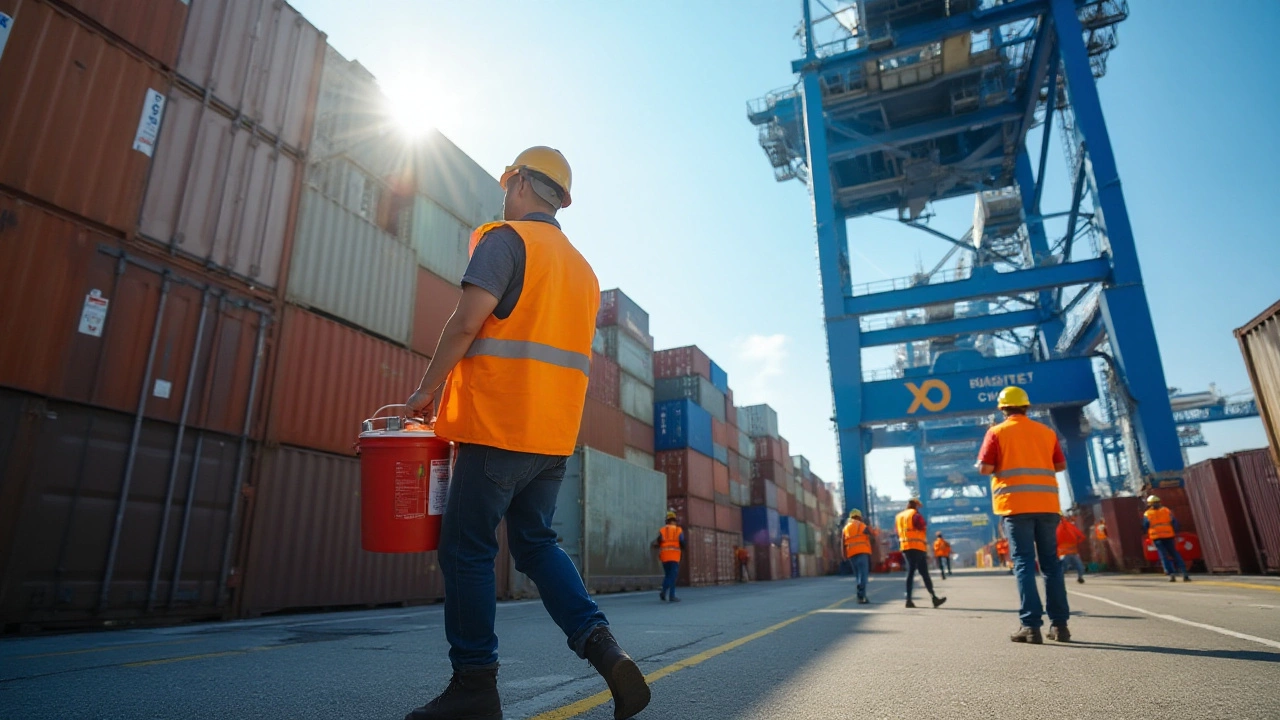Global Freight: What You Need to Know
Thinking about sending a pallet, a container, or a few boxes overseas? That’s global freight, and it’s not as scary as it sounds. In plain terms, global freight is the movement of goods across borders using ships, planes, trucks, or trains. It’s the backbone of international trade and the reason you can order a t‑shirt from another country and have it arrive at your door.
How Global Freight Works
First, you pack your goods and choose a mode of transport. Sea freight is cheap for big loads but takes weeks. Air freight is fast but pricey, perfect for urgent or high‑value items. Once your shipment leaves the origin warehouse, it enters a network of carriers, customs brokers, and ports. Each step adds a bit of paperwork – usually a commercial invoice, packing list, and a bill of lading. The bill of lading is the contract that proves you own the cargo while it’s in transit.
At the destination port, customs clears the shipment. That’s where duties, taxes, and inspections happen. After clearance, a local carrier takes over for the last‑mile delivery, which could be a truck to your warehouse or a door‑to‑door service. The whole process can be tracked online, giving you real‑time updates on where your cargo is.
Choosing the Right Freight Partner
Not all freight forwarders are the same. Look for a company that offers clear pricing, reliable tracking, and good customer support. Ask about their experience with your specific routes – a partner that ships regularly to Europe will know the best ports and paperwork for that region.
Check whether they provide insurance. Accidents happen, and having coverage saves you a lot of hassle. Also, see if they handle customs clearance or if you’ll need a separate broker. Companies that bundle services can make the whole process smoother.
At Dex Removals & Logistics Services, we treat every shipment like it’s our own. Our team knows the UK and global routes, offers door‑to‑door service, and can help you navigate customs without a headache. Whether you need a single pallet for a client or regular bulk shipments, we have the tools to keep costs down and delivery times on point.
Here are three quick tips to keep your global freight costs low:
- Consolidate shipments – sending a full container is cheaper per unit than many small parcels.
- Plan ahead – booking ahead of peak seasons avoids surcharges.
- Use a freight calculator – compare sea vs. air costs before you decide.
Bottom line: global freight isn’t rocket science, but it does need a partner who knows the rules and can keep things moving. If you’re ready to ship internationally, reach out to Dex. We’ll give you a simple quote, handle the paperwork, and keep you in the loop every step of the way.
December 5, 2024
Evelyn Wescott
0 Comments
Shipping a 5-gallon bucket internationally involves understanding various costs and logistical considerations, including carrier selection, shipping methods, and packaging requirements. This comprehensive guide explores the factors that influence shipping costs, offers tips on how to save money, and discusses potential challenges and solutions. By navigating these complexities, individuals and businesses can better manage their global shipping needs. Whether it's for personal use or commercial purposes, effective planning can make the shipping process smoother and more affordable.




